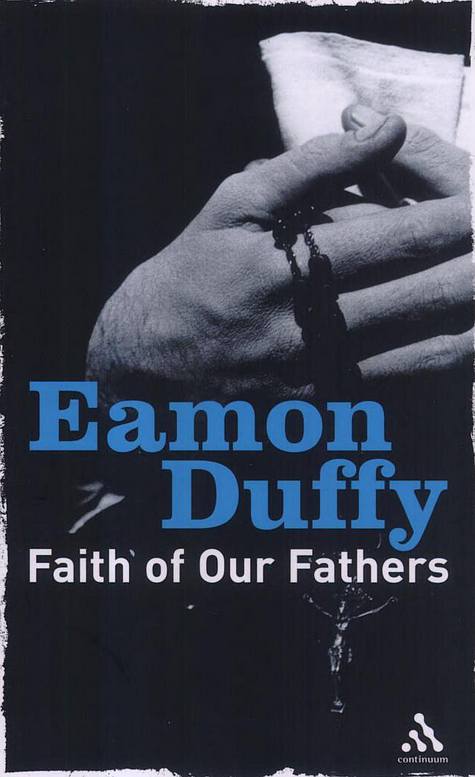
De siste ukene har jeg lest gjennom de nokså ulike kapitlene (de begynte som artikler i tidsskriftet ‘Priests and People’) i boka: Faith of Our Fathers: Reflections on Catholic Tradition, by Eamon Duffy, Continuum. 187 pp. I First Things kan vi lese en anmeldelse av boka, som begynner slik:
Faith of our Fathers is a spirited defense of Catholic ritual, discipline, and communal observance—of the ways in which the collective wisdom of Christian tradition is passed on from one generation to another. “After thirty-five years of studying and teaching the theology and history of the Church,” writes Eamon Duffy, “I find myself living more and more out of resources acquired not in the lecture room or library, nor even at the post-conciliar liturgy, but in the narrow Catholicism of my 1950s childhood, warts and all.” This insight, says Duffy, “springs . . . from growing appreciation of just how much of the essence of Catholicism my provincial Irish childhood transmitted to me. For all its apparent narrowness, it bore stronger witness than many modern forms of Catholicism to realities which have come to seem to me infinitely precious. Its ritual absolutes and rules look legalistic, rubric-mad today: but they spoke with a sure confidence of the sacramentality of life, the rootedness of the sacred not in pious feelings of ‘spirituality,’ not in our heads or even exclusively our hearts, but in the gritty and messy realities of life, birth, death, water and stone and fire, bread and wine.”
Eamon Duffy is no traditionalist, mind you. He is calling neither for the restoration of the Tridentine Latin liturgy nor for a return to the devotional practices of past generations. Duffy is generally considered to be a man of the left, and he has been a critic of some of the policies of Pope John Paul II. Again and again in these essays he says that tradition has to do with change, adaptation, and in one place he calls it an instrument for “discovery.” Yet he has come to view the developments within Catholic life over the last two generations with mounting alarm—not because they brought change but because they ignored the deeper wellsprings that nourish and sustain Catholic piety. …
